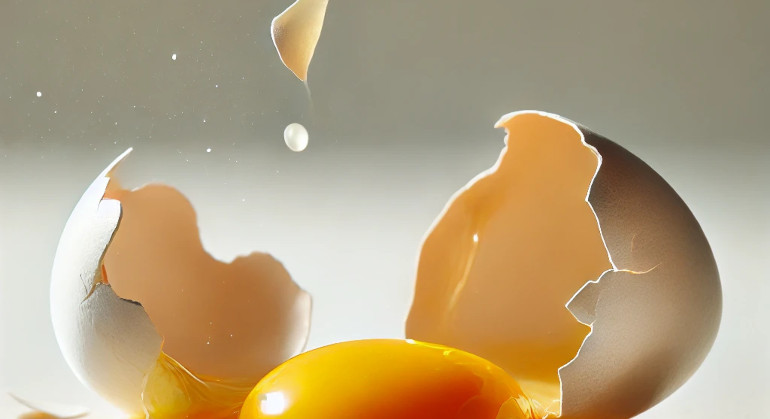There's a lot that goes into making an egg shell, and theres a lot of factors that affect its composition, colour and strength. Strength is important as it needs to put up with being transported and pack and in a commercial setting, cope with going through automatic machinery. Here a few factors that affect the eggs shell strength.
1. Nutrition
- Calcium Levels: Adequate calcium is crucial for strong eggshells. Hens require a diet rich in calcium, often supplemented with oyster shells, limestone, or other calcium-rich feed additives.
- Phosphorus: Balanced calcium and phosphorus levels are necessary for optimal eggshell quality. Excess phosphorus can interfere with calcium absorption, weakening the shell.
- Vitamin D: This vitamin aids in the absorption of calcium from the gut. A deficiency in vitamin D can lead to poor shell quality.
- Magnesium and Manganese: These minerals play a role in shell formation. A lack of these can result in weaker shells.
2. Genetics
- Breed Differences: Some chicken breeds naturally produce stronger eggshells than others due to genetic factors.
- Selective Breeding: Breeding programs that select for stronger eggshells can enhance the trait over generations.
3. Environmental Conditions
- Temperature: High temperatures can lead to thinner eggshells as hens might reduce their calcium intake or experience stress.
- Light Exposure: Proper lighting schedules help regulate egg production and can indirectly affect shell quality.
- Stress: Environmental stressors such as overcrowding, noise, or handling can lead to weaker shells.
4. Hen Age
- Older Hens: As hens age, their ability to produce strong shells typically declines. This is due to the gradual depletion of calcium reserves and less efficient nutrient absorption.
5. Health and Disease
- Illness: Diseases such as infectious bronchitis can directly affect the reproductive tract and lead to weaker eggshells.
- Parasites: Internal or external parasites can affect overall health and reduce the hen’s ability to produce strong shells.
6. Water Quality
- Contaminants: High levels of certain minerals or contaminants in drinking water can affect calcium metabolism and shell strength.
- Water Availability: Inadequate water intake can lead to poor egg production and weaker shells.
7. Production Cycles
- Frequent Laying: Hens that lay eggs more frequently may have less time to deposit sufficient calcium into each eggshell, resulting in thinner shells.
By managing these factors, farmers can help ensure that their hens produce eggs with strong, resilient shells.


